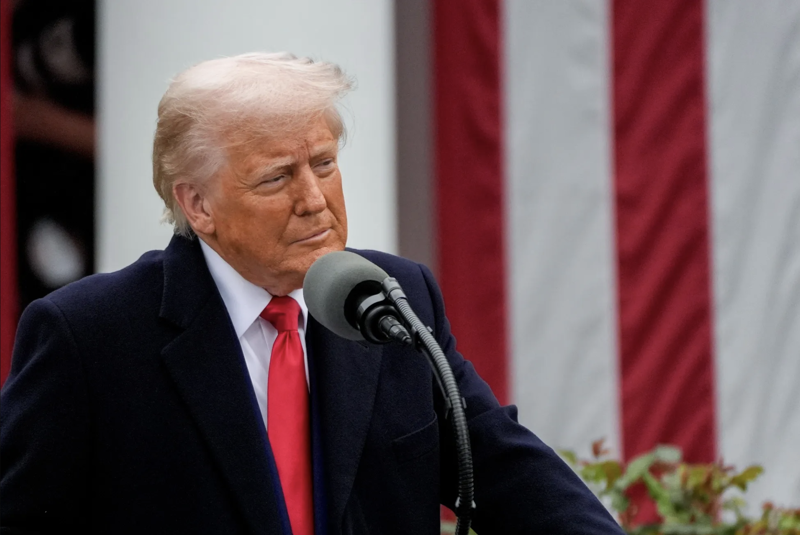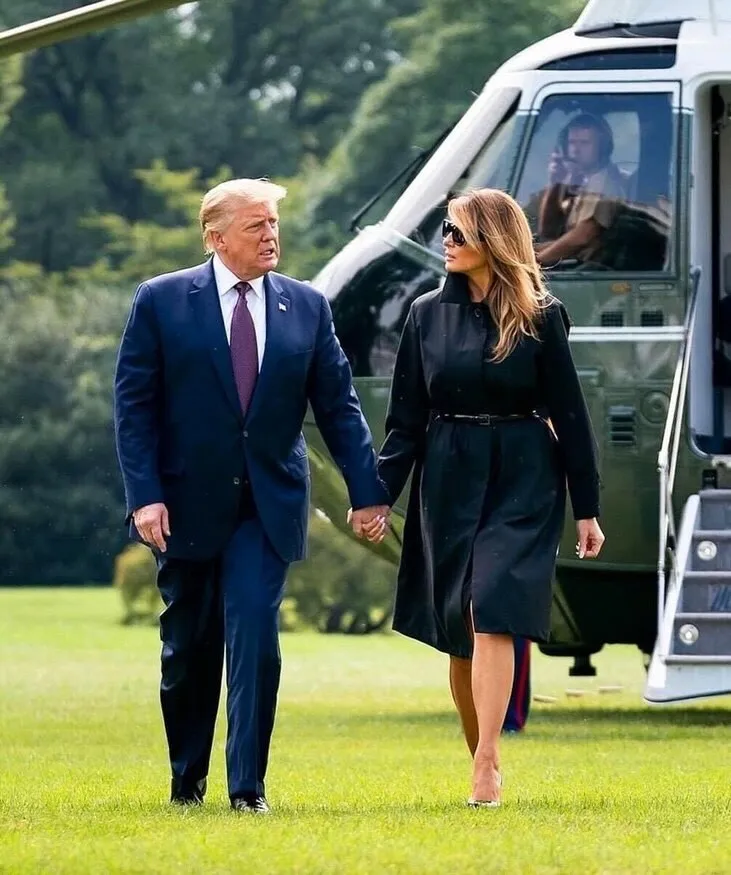Thus, in less than 1 day after the entire reciprocal tax plan took effect, Mr. Trump had a move to “turn the car” on this tax …

US President Donald Trump on April 9 reduced the reciprocal tax on a 10% basis within 90 days for all countries and territories to be imposed to facilitate trade negotiations. However, after being retaliated by Beijing, Mr. Trump not only did not reduce the reciprocal tax for China, but also increased taxes on goods of this country to 125%.
As soon as April 9, the US time, the reciprocal tax rate is higher – ranging from 11-50%, applied to nearly 90 countries and territories – officially effective. The basic tax rate of 10% has taken effect since April 5.
Thus, in less than a day after the entire reciprocal tax plan took effect, Mr. Trump had a move to “turn the car” on this tax. “I decided to postpone 90 days and sharpened the reciprocal tax during this time, in 10%, took effect immediately,” Mr. Trump wrote in a post on social network Truth Social.
Later, US Finance Minister Scott Bessent clarified that all countries except China will be taken down on the basis of 10%, from up to 50% of the previous market shock, during the negotiation period. However, this postponement does not apply to tariffs in the industry such as cars, aluminum and steel. In addition, the two neighboring countries of North America are Canada and Mexico – which is not imposed on reciprocal tariffs – still imposed on 25% tax.
Also in the above post, Mr. Trump said continuing to increase tariffs on Chinese goods, to 125%, effective immediately. The basis he gave to this move was “the lack of respect that China has shown to the world market”.
Before providing a total additional tax rate of 125% for Chinese goods, Mr. Trump had 4 taxes on the country since he was in power for the second term, including two 10% voltage, 34% reciprocal tax, and a 50% voltage to retaliate against Beijing’s 34% tax on US goods to respond to reciprocal taxes.
Earlier on April 9, China – the third largest US trading partner – announced it would increase tariffs on US goods from 34% to 84% to respond to the previous 50% tax that Mr. Trump hit the country.
Also according to Mr. Trump, there have been “more than 75 countries” to contact the US to negotiate tariffs since he announced the reciprocal tax plan last week. The White House refused to publish this list.
At a press conference in the afternoon of April 9, Mr. Trump admitted that investors were panicked because of his reciprocal tax plan. “I think everyone has become a little bit chaotic,” he said, and added that “it is necessary to have flexibility” about the policy.
Talking to the press, Mr. Bessent said Mr. Trump always intended to “brake” for the reciprocal tariff plan. “It is the president’s strategy,” Bessent said at the White House, although for many days before the US government officials – including Mr. Bessent – denied rumors that the reciprocal tax would be delayed.

Speaking after Mr. Trump’s “rotating” move on April 9, Democratic Senator Chuck Schumer, a minority leader in the Senate, said that the President “is feeling the heat from the Democratic faction and from all over the United States because of the negative tariffs.” “He is withdrawing, and that’s a good thing,” said Schumer.
Mr. Trump also revealed that he had seen an interview with Mr. Jamie Dimon – CEO of Jpmorgan Chase – broadcast earlier on April 9. In that conversation, Mr. Dimon said tariffs could lead to an American economic recession. Mr. Trump commented that Mr. Dimon said “very well” in that interview and Mr. Trump noticed the CEO’s comment that “it is necessary to do something about tariffs and trade.”
“He is very smart, a genius in the field of finance,” Mr. Trump commented.
In a post on social network X, US Secretary of Commerce Howedd Lutnick said he and Mr. Bessent sat with Mr. Trump when Mr. Trump wrote an article about the reciprocal tax postponement on Truth Social. It was “one of the most extraordinary articles of the president in his term,” Mr. Lutnick said.
“The world is ready to work with President Trump to adjust the global trade, and China chose to go against the opposite,” Mr. Lutnick wrote.
Along with that, the White House also made a call to US trading partners: “Don’t retaliate, and you will benefit” – CNBC reported.





